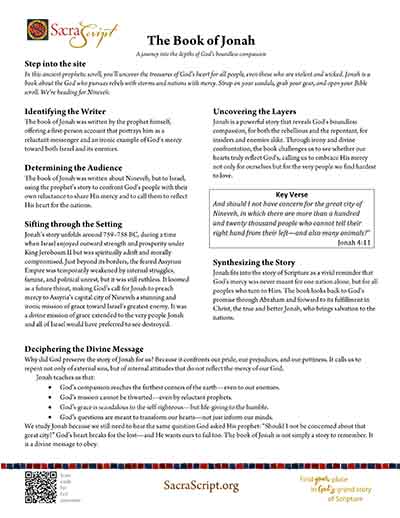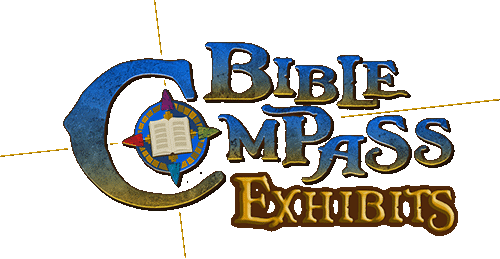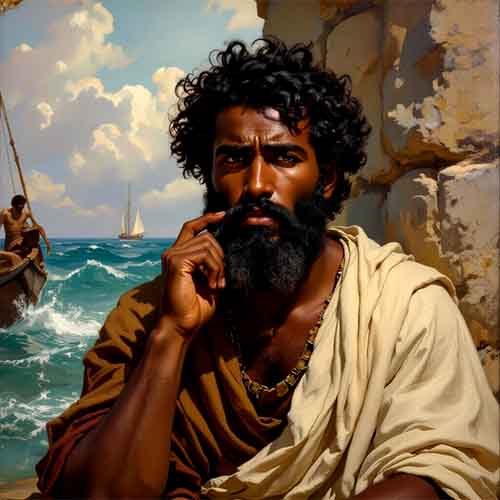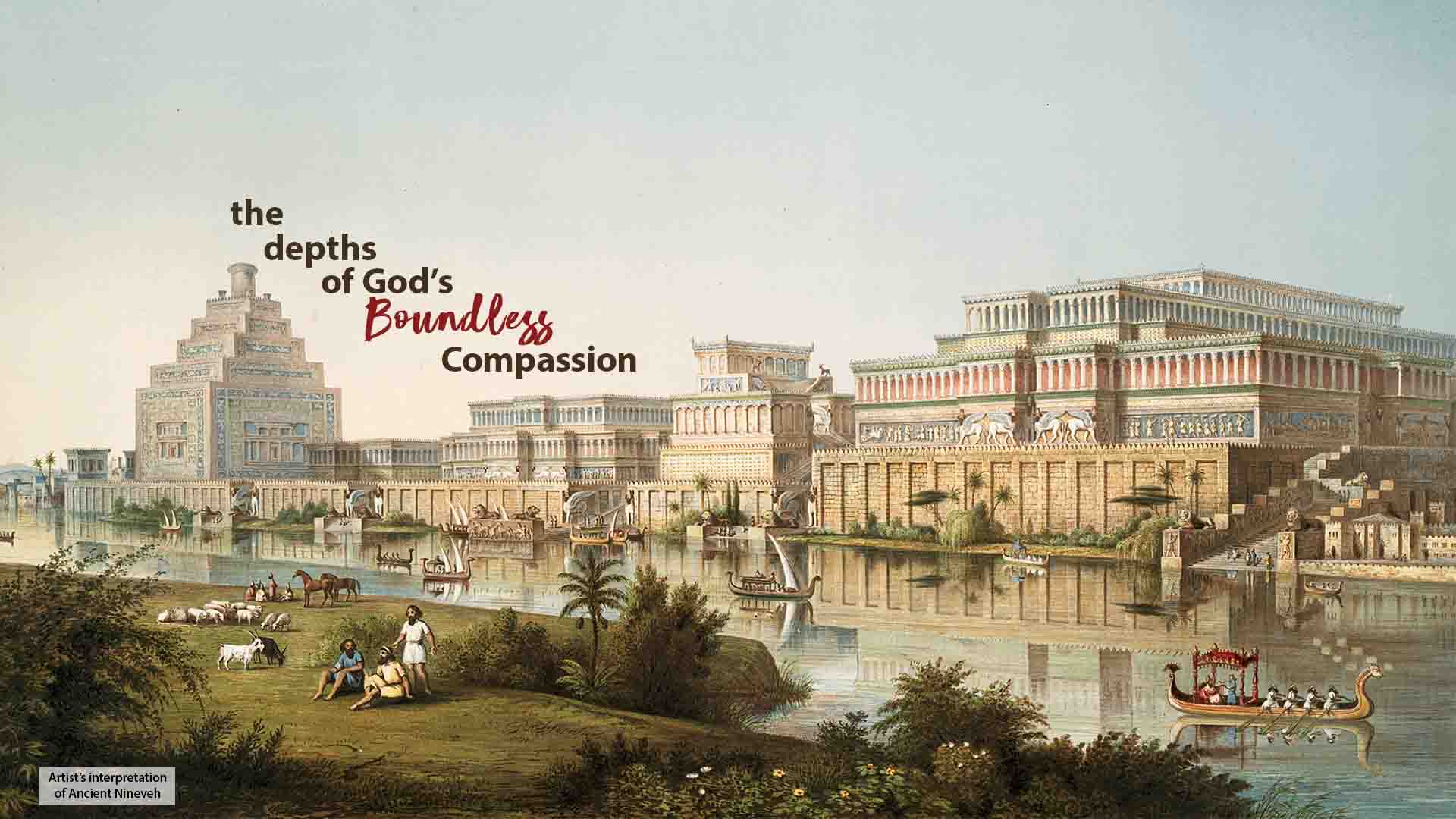

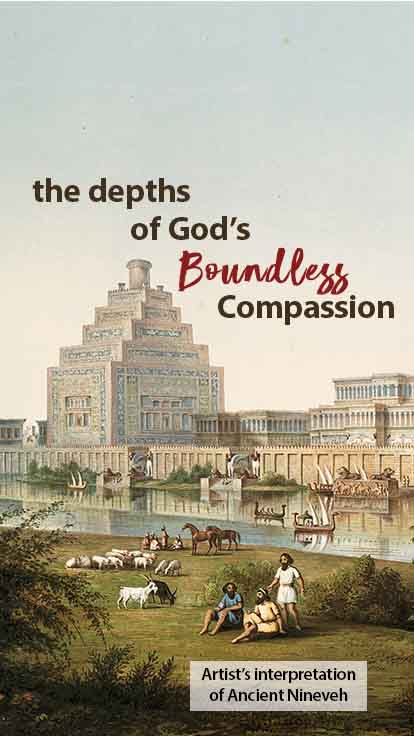
An Overview of the Book of Jonah
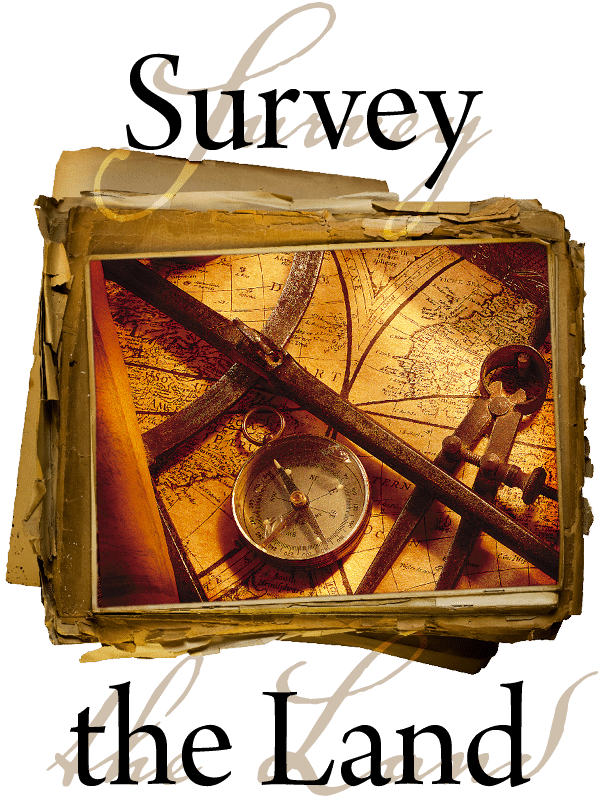
Surveying the land is the first step in any great discovery. Before any excavation begins, explorers must study the unknown terrain, map the surroundings, and gain a sense of the landscape. In your study of the Bible, surveying the land means stepping back to understand how a particular book fits into the larger story God is telling. Like using a compass and a map, this equips us with the tools we need to navigate Scripture faithfully.
The Book of Jonah
A journey into the depths of God’s boundless compassion
Prepare to set sail on a journey unlike any other. The Book of Jonah doesn’t just invite you to read—it dares you to dive. This is no ordinary prophetic scroll. It’s a tale of wind and waves, flight and fish, anger and mercy. Jonah is the only prophet in Scripture who runs away from God’s mission—only to be swallowed by grace and sent back again. His story challenges our assumptions, stirs our affections, and exposes our reluctance to love those we’d rather avoid.
In these ancient pages, you’ll uncover the treasures of God’s heart for all people. Yes, even the wicked. Even the violent. Even the ones who’ve hurt others. Jonah is a book about the God who pursues rebels with storms and nations with mercy. Strap on your sandals, grab your gear, and open your scroll. We’re heading for Nineveh.
Determining the Audience
The original recipients
Although Jonah’s mission is directed toward the pagan people of Nineveh, the actual audience of the book is Israel. Through Jonah’s story, God speaks directly to His own people, confronting their pride, stubbornness, and reluctance to carry His message of salvation to the nations. Jonah serves as a foil in this narrative, a reluctant missionary whose behavior invites us, the readers, to ask hard questions about our own response to God’s mercy for the unlovely.
This is not merely a story about pagans who repent. It is also a story about prophets who resist. It is written to God’s covenant people, calling them to examine their hearts and align their character with the heart of the God they profess to follow.
Sifting through the Setting
The historical background
The story of Jonah takes place around 759–758 BC, during the reign of Jeroboam II in the northern kingdom of Israel. This was a time of national expansion and economic prosperity. Israel’s borders were secure, its cities were flourishing, and its armies were strong. Outwardly, the nation appeared blessed. But inwardly, Israel was marked by spiritual complacency, moral decay, and widespread idolatry. The covenant had been neglected, and the people had grown indifferent to the Lord who had rescued them.
To the northeast, the Assyrian Empire loomed. Although Assyria was in a temporary period of weakness, crippled by internal revolts, famine, and instability during the reign of Ashur-dan III, its reputation was anything but weak. The Assyrians were feared across the ancient Near East for their ruthless military campaigns, their public displays of violence, and their practice of humiliating conquered peoples. Their capital cities, including Nineveh, symbolized imperial pride and cruelty. Though Assyria was momentarily restrained, its threat was far from gone. In fact, within just a few decades, Assyria would rise again and become the very instrument of judgment that God would use to destroy the northern kingdom of Israel in 722 BC.
For Jonah, Nineveh represented everything that Israel feared and hated. It was the heart of a brutal empire, the enemy of God’s people, and a future destroyer of the nation he was proud to come from and called to serve. And yet God sent Jonah, not to announce Assyria’s doom, but to offer them the possibility of repentance. The irony was sharp. The prophet who longed to protect Israel was being sent to extend mercy to its greatest threat.
Uncovering the Layers
The meaning
Jonah is a book of profound theological richness. Its central message is that the Lord is a God of compassion, not just for “us” but also for “them.” The mercy Jonah receives when he disobeys is the same mercy God extends to the Ninevites when they repent. From start to finish, the story emphasizes God’s sovereign initiative, His deep concern for the lost, and His patient pursuit of both his rebellious prophet and the pagan nation.
The narrative exposes the irony of a prophet who is grateful for his own salvation but bitter about the salvation of others. It calls us to examine whether our hearts reflect the heart of God. Are we eager for our enemies to receive mercy, even when they do not deserve it? Or do we care more about our own comfort, safety, and reputation than about the spiritual condition of those around us?
Jonah is also a theological mirror held up to the reader. It does not end with a resolution but with a probing question from God: “Should I not care about that great city?” This open ending is intentional. It invites God’s people in every generation to wrestle with the same issue. Do we delight in the wideness of God’s mercy, or do we resist it when it reaches those we struggle to love? Jonah is not just about a prophet and a pagan city. It is about the character of God and whether we will share His heart for the lost world.
The book also reveals a God who is in control of all things. Storms, sea creatures, sailors, plants, worms, winds, and cities all respond to His sovereign command. Nothing is outside His reach. Every event in Jonah is ordained by God to accomplish His purposes and to reveal His character.
How to Read
the Book of Jonah
A quick guide to
its writing style and structure
What kind of book is this?
Jonah is a true story about a real prophet. It is not a list of sermons but a carefully told historical narrative that reveals deep truths about God through what Jonah does, not just what he says.
Why is it written this way?
The story uses humor, irony, and exaggeration to make us think. It helps us see how unusual Jonah’s behavior is and how amazing God’s mercy can be.
How is it organized?
The book has two matching halves. In the first, Jonah runs away and gets rescued. In the second, Jonah obeys but becomes upset when others are rescued.
What should I look for?
Watch for repetition, surprises, and questions. God asks Jonah, and us, things like: “Do you care more about a plant than about people?”
How should I read it?
Read it as a true story with a message. It is meant to teach your heart as much as your mind. Pay attention to what it reveals about God and about yourself.
Synthesizing the Story
Fitting into scripture
The Bible tells one continuous story. It is the story of God making a way to dwell with sinful people. From the first promise in Genesis to the final vision in Revelation, God’s plan of redemption unfolds with purpose. Jonah is a small book with a powerful message that helps us see God’s mercy in motion.
From the beginning, God promised that through Abraham, all nations would be blessed [Genesis 12:3]. Israel was chosen to display His character, but by Jonah’s time, the northern kingdom had grown spiritually hard-hearted, due to a time of national strength but deep spiritual complacency. Yet Jonah was not sent to rebuke Israel. He was sent to Nineveh, one of Israel’s most detested and feared enemies.
Jonah knew because of God’s character that if Nineveh repented, He would forgive them [Exodus 34:6]. That was precisely what happened. But Jonah resented it. Like Israel, he misunderstood the depths of God’s mercy. The book exposes the error of believing that God’s grace belongs only to one chosen group and not to others.
Jonah’s story also points forward to Jesus. Jonah prayed for himself. Jesus prayed for his enemies. Jonah fled from his mission. Jesus fulfilled His. Jonah was delivered on the third day. Jesus rose on the third day [Matthew 12:40]. Jesus is the true and better Jonah, bringing salvation not only to Israel but to the nations.
The book ends with a question. Should God not care for Nineveh? The answer echoes throughout Scripture. The God of Jonah is the Lord of all nations and all peoples. And He still delights to show mercy to all those who turn to Him.
Key Verse
And should I not have concern for the great city of Nineveh, in which there are more than a hundred and twenty thousand people who cannot tell their right hand from their left—and also many animals?”
Jonah 4:11
Deciphering the Divine Message
What we learn
Why did God preserve the story of Jonah for us? Because it confronts our pride, our prejudices, and our pettiness. It calls us to repent not only of external sins, but of internal attitudes that do not reflect the mercy of our God.
Jonah teaches us that:
- God’s compassion reaches the farthest corners of the earth—even to our enemies.
- God’s mission cannot be thwarted—even by reluctant prophets.
- God’s grace is scandalous to the self-righteous—but life-giving to the humble.
- God’s questions are meant to transform our hearts—not just inform our minds.
We study Jonah because we still need to hear the same question God asked His prophet: “Should I not be concerned about that great city?” God’s heart breaks for the lost—and He wants ours to break too. The book of Jonah is not simply a story to remember. It is a divine message to obey.
Want your own copy of the overview of Jonah?
